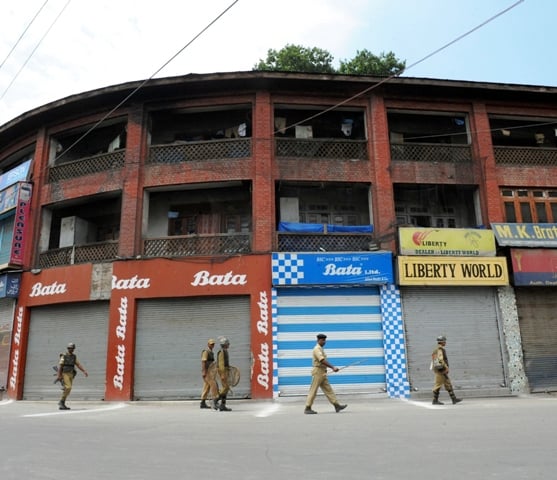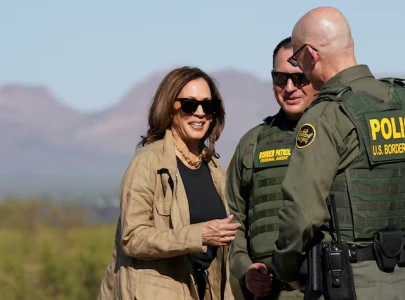
A major impediment to annex IOK in the Indian Union was removed on August 5 when the Jammu & Kashmir Reorganization Act was passed. After two months, there is no indication that the Indian government intends to undo this action. On the contrary, Indian External Affairs Minister Subrahmanyam Jaishankar asserted that India’s next move would be to seek control over Azad Kashmir and Gilgit-Baltistan.
During this time, except for statements, speeches, and demonstrations in Pakistan and across the world, nothing substantial has been achieved to compel India to review its unilateral act of ending IOK’s special status. New Delhi has neither released the thousands of Kashmiris, including children, it arrested, nor restored communication networks or lifted the curfew in the Valley. Based on its past acts of annexing Hyderabad Deccan, Junagarh, Goa and occupying Siachen, India is now systematically implementing its age-old plan to transform the demographic complexion of the Muslim-dominated Kashmir Valley. And who can undermine the fact that India took advantage of the 1971 crisis in then East Pakistan and invaded it, which resulted in the creation of Bangladesh? Since then, India has repeatedly reminded the world of its role in the breakup of Pakistan and gotten away with blatant aggression.
If the Kashmir Valley is emerging as the West Bank of India, it means India is replicating the Israeli policy of launching Jewish settlements and annexing a major chunk of the occupied land. In June 1967 during the Arab-Israeli war, Israel occupied the Palestinian territory of West Bank, including East Jerusalem which was at that time under Jordan’s control. UNSC Resolutions 242 and 338 calls upon Israel to withdraw its forces from the Arab-occupied areas including the West Bank. After 52 years, Israel has not only annexed East Jerusalem where the Al Aqsa Mosque is located but also shifted its capital from Tel Aviv to Jerusalem. Israel, while violating the UNSC resolutions, has established hundreds of Jewish settlements causing a serious demographic tilt in favour of the Jewish population. Israeli PM Benjamin Netanyahu recently announced that if re-elected, he will annex a sizeable part of the West Bank. Henceforth, it is the Israeli model of West Bank which India is duplicating in its occupied Valley of Muslim-majority Kashmir.
Since India has already declared Ladakh, Jammu and Kashmir as union territories, it needs to ensure that at least five million Indians settle in the Valley in the next few years. The remaining almost eight million Muslim Kashmiris will be neutralised either by displacement or by being pushed across the LoC. Till the time the Valley transforms into a non-Muslim territory, Indian military and paramilitary force will stay there and J&K State Assembly elections will not be held.
Is it possible for India to replicate the Israelisation of West Bank as Indianisation of the Valley? Why is the Modi regime so confident that it will get away with this? Has any political or diplomatic damage been done to India in the last two months? Pakistan’s attempts of raising the Kashmir issue in the UNSC or in the annual General Assembly session under PM Khan’s “Kashmir mission” may not have a significant impact on the Indian psyche because of two main reasons.
First, no resolution in the Security Council has been presented assailing India of unilaterally ending IOK’s special status. Nor has any pressure been exerted by Pakistan across the LoC to deter Indian authorities from committing severe human rights violations including arresting children, dishonouring Muslim Kashmiri women and depriving eight million people of basic necessities.
Second, apart from statements and protest marches across the world, Kashmiris have been prevented from launching large-scale popular protests in the Valley. Using deception as a tool, the Modi regime tried to break the tempo of any popular resistance thereby arguing that the case is with the Indian Supreme Court and if the court declares the August 5 reorganisation act null and void, it will accept the verdict. The skilful and shrewd approach of Modi’s regime is to gain time and raise hope in the Valley for justice from the superior judiciary. And, while hearing petitions against the imposition of curfew and other punitive measures of the Indian government in IOK, the Indian Supreme Court refused to pass any order and merely asked the High Court of J&K and the state government to ease things for the people of the Valley. How can one expect the court to do anything if it’s reluctant to pass a judgment which will seriously impede the central government’s credibility?
There are strong indications that India may get away with its absorption of the occupied territory and transforming the Valley into something like the Israeli-occupied once Palestinian-majority West Bank. So far, there is no major opposition in India against the BJP’s policy. The Indian security establishment and its political allies led by the BJP think that Pakistan lacks the capability to challenge India militarily or arrange the crossing of LoC by scores of Kashmiris in Azad Kashmir, to confront Indian security forces. That is why, they believe, PM Imran Khan recently warned that no Pakistani should attempt to cross the LoC. Whereas addressing a public meeting in Chakothi, the Azad Kashmir PM warned no one can dare stop Kashmiris from crossing the LoC. The Indian government is aware of Pakistan’s economic situation and political confrontation between the government and the opposition over the arrests of key PPP and PML-N leaders, and the proposed march on Islamabad by JUI-F chief Maulana Fazlur Rehman to force the PTI government to quit.
In the absence of any clear support for Pakistan in passing a resolution against India in the UNSC or calling a special session of the UN General Assembly, New Delhi is quietly working on implementing its plan to change Kashmir’s demography. Pakistan is doing its best to expose villainous India internationally. But rendering sacrifices for the suppressed Muslim population of the occupied Valley would require direct action; and not just holding seminars or conferences in five-star hotels or arranging foreign tours at the taxpayers’ expense.
A national liberation movement cannot be launched by mere slogans but requires targeting the enemy to effectively deter it from continuing its brutalities. Most importantly, by missing the September 19 deadline for presenting a resolution in the UNHRC on India’s violations of human rights in IOK, Pakistan missed a valuable opportunity to expose New Delhi at the international level. As time passes, the Modi regime in collaboration with President Trump is gaining confidence to legally shape its occupation of the Valley.
Published in The Express Tribune, September 27th, 2019.
Like Opinion & Editorial on Facebook, follow @ETOpEd on Twitter to receive all updates on all our daily pieces.













COMMENTS
Comments are moderated and generally will be posted if they are on-topic and not abusive.
For more information, please see our Comments FAQ